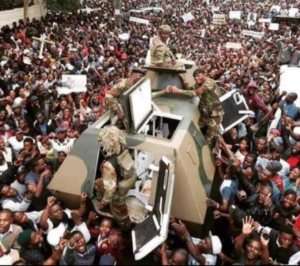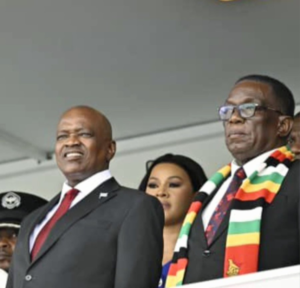REFOCUSING ZIMBABWE SANCTIONS: A GEOPOLITICAL BATTLE OVER STRATEGIC MINERALS

As the world’s superpowers continue to pivot towards Africa in their endless quest for resources, Zimbabwe finds itself at the heart of a geopolitical storm. The country’s abundant reserves of strategic minerals have drawn not only economic interest but also geopolitical attention, particularly from China and Russia. These nations, known for their cutthroat competition with the West, are keen to establish a foothold in Zimbabwe, a development that has raised concerns among Western nations, notably the United Kingdom. Amidst this complex backdrop, UK legislators are calling for a strategic rethink of the Zimbabwe sanctions regime, which has evolved significantly under new measures introduced by the United States.
The sanctions against Zimbabwe, as articulated by the UK, aim to promote a governance framework rooted in democratic principles, the rule of law, and respect for human rights. Specifically, the sanctions regime targets individuals and entities involved in human rights violations, the repression of civil society, and actions that undermine democracy or the rule of law in the country. By imposing asset freezes, the sanctions seek to pressure the Zimbabwean government into aligning its policies with international norms and standards.
However, the entry of China and Russia into Zimbabwe’s mineral sector complicates the Western strategy. Both countries are aggressively pursuing access to Zimbabwe’s strategic minerals, which are critical not only for their economic value but also for their importance in various high-tech and military applications. This geopolitical and geoeconomic manoeuvring poses a significant challenge to the effectiveness of Western sanctions, as Zimbabwe could leverage these relationships to mitigate the impact of Western pressures.
UK legislators argue that in light of these developments, there is a pressing need to reevaluate and possibly recalibrate the sanctions strategy. The evolving dynamics demand a nuanced approach that considers the broader geopolitical context. The challenge lies in crafting a sanctions regime that can effectively promote human rights and democratic governance in Zimbabwe while navigating the complex interplay of international relations shaped by the strategic competition between the West, China, and Russia.
Critics of the sanctions argue that they have had a limited impact on improving governance or human rights conditions in Zimbabwe. Instead, they contend that the sanctions have often served as a rallying cry for the government, which portrays them as evidence of Western imperialism and an attempt to undermine Zimbabwe’s sovereignty. This narrative has found some resonance among the Zimbabwean population and other African nations, further complicating the sanctions’ effectiveness.
The UK’s call for a strategic rethink of the sanctions regime acknowledges these challenges. Legislators emphasize the need for a strategy that is not only punitive but also constructive, offering pathways for Zimbabwe to engage with the international community positively. This could involve a combination of targeted sanctions, diplomatic engagement, and support for civil society and democratic institutions within Zimbabwe.
As the global competition for strategic minerals intensifies, the situation in Zimbabwe underscores the intricate linkages between natural resources, geopolitics, and governance. The West, led by the United States and the United Kingdom, finds itself at a critical juncture. The choice is not merely between imposing sanctions or lifting them but between designing a sanctions regime that can effectively navigate the complexities of modern geopolitical rivalries while advancing the cause of democracy and human rights in Zimbabwe. The outcome of this strategic recalibration will have far-reaching implications, not just for Zimbabwe but for the broader international order.



